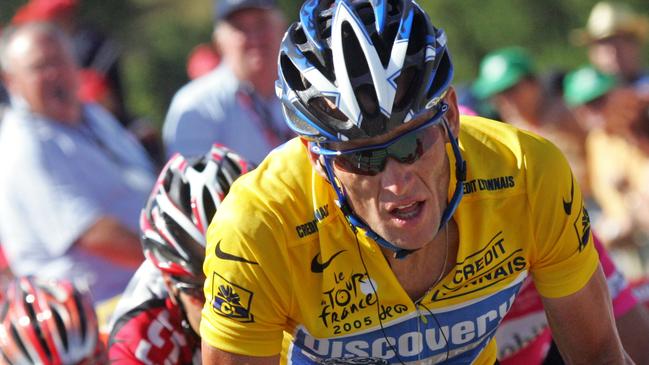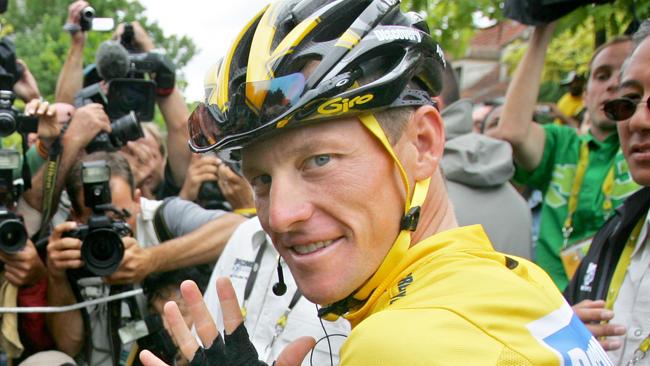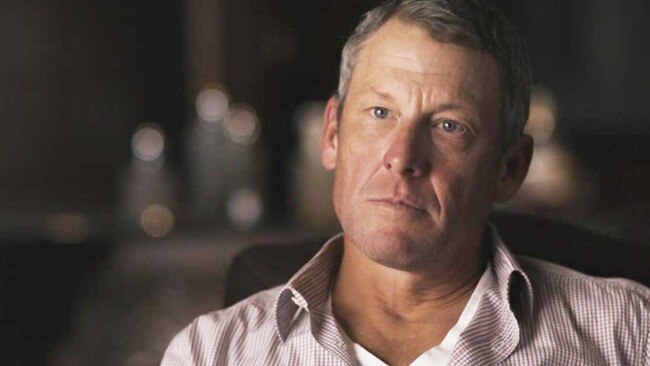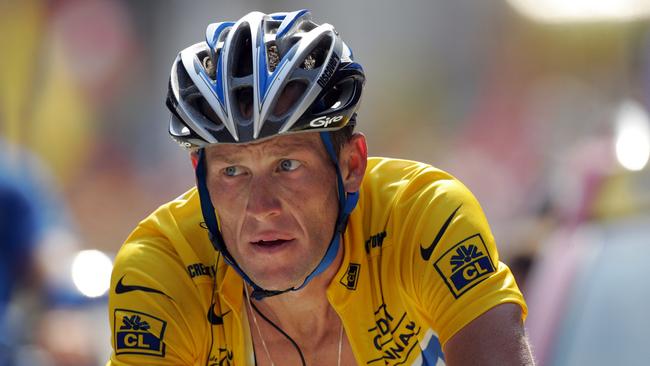Crash Craddock: Lance Armstrong opens up on brutal early life in telling new ESPN documentary
Why was Lance Armstrong the cold, calculating, manipulating beast that he was? Over seven years after he became the world’s most famous sport cheat, a new ESPN documentary gives us some invaluable insight.

Other Sports
Don't miss out on the headlines from Other Sports. Followed categories will be added to My News.
Every sporting parent should watch the latest Lance Armstrong special, a definitive guide of how not to raise your boy.
What you get when ruthless, selfish parental ambition overrides any sense of concern for the emotional damage inflicted on the youngster driven through the hoops.
But first, the disclaimer. Armstrong, the world’s most famous sporting cheat who doped his way to seven Tour de France cycling titles, is a hard man to like and deserves no sympathy.
Kayo is your ticket to the 2020 NRL Telstra Premiership. Every game of every round Live & On-Demand with no-ad breaks during play. New to Kayo? Get your 14-day free trial & start streaming instantly >

The two-part ESPN produced 30 for 30 series shown on Fox Sports confirms what we already knew about Armstrong was true – that he is a hard-arsed bully with a huge ego.
He cheated and only fessed up when the evidence around him was so overwhelming he had nowhere to turn.
In fact he became so comfortable with his rorting that one of the most insightful quotes on him in the documentary comes right near the end when former teammate Floyd Landis said that Armstrong was very comfortable lying and telling the truth is what makes him squirm in his seat.
And so it seemed. Armstrong tells us he did not have a solitary problem lying his way through years of media interrogation about doping with square-jawed self-righteousness and barely a mumble or stumble, ridiculing anyone who was trying to ridicule him.
Yet, in this special, simple questions like “are you still relevant?” drive him to temporary, awkward silence.
There is no sense he has deep regrets about what he did, more a shoulder-shrugging lament that he was part of a sick system and he had to be sick to win. There are times when he seems to move to the brink of regret but he never quite gets there.

Some viewers ignored the special on the grounds the story had been so well told and the still-confident though slightly more mellow Armstrong was not worth their time.
But it’s worth a look, if only for the telling insights into why Armstrong was the cold, calculating, manipulating beast that he was.
It starts almost from the day he was born into a world lacking stability and role models.
“It’s a miracle I’m not a mass murderer,” Armstrong said in a pointed throwaway line about his early life.
Lance’s stepfather Terry admitted he drove Lance “like an animal” and Lance admitted he would “beat the shit out of me” for such major issues as leaving his top drawer open in his bedroom.
Stone-faced Terry has few regrets but he does concede one mistake. He forgot to love his stepson. Or even pretend to love him. There were no cuddles. No consoling arms over the shoulder. Lance was driven like a greyhound or a racehorse.

He became a product of the glacially cold world in which he was raised as the son of a mother who had him when she was 17.
The rorts started early. Armstrong raises his eyes at the brazen rule-breaking he and his family initiated when he forged his birth certificate to say he was 16 and eligible for his first triathlon.
“Forge the certificate, compete illegally and beat everybody,” he said, shaking his head at the shamelessness of it all.
One female masseuse raises the interesting point that she was yet to reconcile whether cancer survivor Armstrong, whose story once inspired the masses, was a bad man who occasionally did good things or a good man who turned bad.
But one thing is sure.
Armstrong was born into a bad system and became a product of it.

“Nobody dopes and is honest about it,’’ he said of his cool, coherent years of denying his drug use.
“The only way you can dope and be honest about it is that if no one ever asks you and that is not realistic. The second somebody asks you, you lie.’’
And he did. Often.
GOOD
News that crowds will return to the footy in July is welcomed by all sports. Television broadcasters have done well to create virtual crowd noise but there is nothing like the real thing.
BAD
The A-League soccer competition has been dithering for weeks about its future this season but it is the bigger picture causing most concern. The once buoyant league appears to be running on fumes, not where you want to be in the post-COVID era.
UGLY
The backlash which awaits Olympic officials if they proceed with plans to ban the one-knee Black Lives Matter salutes by athletes in Tokyo next year. It sounds great in theory that the Olympics try to unite rather than divide the masses but any disciplinary action could create an instant bushfire.



